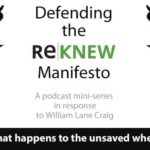We run our website the way we wished the whole internet worked: we provide high quality original content with no ads. We are funded solely by your direct support. Please consider supporting this project.

Guest Post: Is Hell the Center of our Faith?
My husband Andy and I had been living in the slums of North India for over a year by the time we returned to one of our sending churches for a visit. We met with the church staff to talk about what we were doing: learning language, listening to people’s stories, eating together, celebrating holidays, birthdays and weddings, and attending funerals.
A few days later, the pastor called us back for a second meeting with just a few staff members to “talk theology.” He asked us again about our work. We explained again how we had been counseling both victims and abusers in situations of domestic violence, advocating for our friends at crowded government hospitals, and helping families open bank accounts to save for medical care and education for their kids.
The pastor nodded his head, but he seemed to be waiting for us to get to the point. “What does Jesus have to do with all this?” he finally asked, furrowing his brow and fixing us with a concerned look.
His question caught us off guard. “Well, Jesus is in all of it,” we explained. His teachings about enemy love and forgiveness were the whole reason we believed that compassion could put an end to cycles of violence. It was his vision of the Kingdom of God which led us to protect vulnerable people from abuse, and to help everyone to see themselves and one another as people worthy of dignity and love.
The church staff looked uncomfortable and confused. “Are you there to preach the gospel, or to perform works of mercy?” one of them asked.
“We don’t see the message of Jesus and the love of Jesus as things that can be separated out from one another,” we replied. “In fact, when Jesus publically announces his mission for the first time, he quotes from Isaiah: ‘The Spirit of the Lord is on me, because he has anointed me to preach good news to the poor. He has sent me to proclaim freedom for the prisoners and recovery of sight for the blind, to release the oppressed, to proclaim the year of the Lord’s favor.’”
“But are you telling your neighbors about Jesus?” the pastor wanted to know.
“We’re having spiritual conversations with our neighbors all the time, hearing what they believe and explaining what we believe.” We described how we often prayed with our neighbors in situations of illness, conflict, or danger, and had even read part of the Sermon on the Mount with a neighbor.
That wasn’t what he meant. Were we leading them to pray the sinner’s prayer? They were Muslims, after all, so didn’t we believe that all of them were condemned to hell unless they made a “profession of faith” and “prayed to receive Jesus into their hearts”?
“What does it mean to profess faith?” we asked. If people began to live like Jesus, practicing enemy love and forgiveness, caring for one another, and experiencing God’s unconditional love, was this not a profession that they believed the Good News of the Kingdom?
As for our neighbors’ eternal destinies, only God knows what is in the human heart, so we couldn’t know for sure who was “in” or “out,” but we had hope that God could draw our Muslim neighbors to Himself—even if they never took on the Christian label.
This ambiguity didn’t sit well with the pastor. His line of inquiry narrowed to a single question: “Five years from now, if everyone in your slum community were living like Gandhi, would you be happy with that?”
“If everyone was practicing nonviolence, sharing their resources with one another, forgiving their enemies, and seeking justice together as a community? Yeah, that would indicate some serious spiritual progress!” How many churches could claim to be living such Christ-like lives?
Our answer confirmed to the pastor that there was not enough money in the church’s budget for a ministry as “unfocused” as ours. One of the staff members looked at us apologetically and explained, “We understand that you need to focus on stuff like clean water in your context, because people are poor. But people in our congregation already have their basic needs met, so we need to focus on something else.”
It seemed that there in that affluent suburb, neither hell nor poverty were personal issues for most Christians—the majority of the people they knew believed in Jesus and were financially secure, so they were basically safe, in this life and the next. But our friends in the slum were experiencing hell on earth already. It was friendship with them which had led us to grapple with the mystery of how a loving God would ultimately reconcile justice with mercy.
The church staff, like many evangelical Christians, acted out of a belief that hell is the central problem for human beings, and that efforts to alleviate temporal suffering are a waste of time, or even a dangerous distraction from the Church’s mission of spiritual rescue through right belief.
This underlying understanding of salvation as rescue from the wrath of God—to put it bluntly, of Jesus saving us from God—leads to the idea that following Jesus is primarily about escaping punishment. Yet the New Testament tells us that perfect love casts out fear, and I believe the opposite is also true. I wonder whether a person can authentically respond to God in love as long as they are terrified that refusing Him will land them in hell.
Tragically, this hell-centered theology not only misunderstands or disregards much of Jesus’ life and teachings—it also prevents Christians from fighting for justice, working for peace, or caring for the vulnerable people on the margins of our society. Yet not only do the poor suffer when the Church remains aloof from their plight. Wealthy Christians themselves miss out on powerful relationships that could personally transform them, bringing them closer to Jesus and into deeper awareness of their own spiritual poverty and brokenness.
The wealthy and the poor need one another. We are called into community, and there is no way to follow Jesus without concerning ourselves with the well-being of our fellow human beings. I pray that together, we will choose to live into this kind of life-giving faith that is based in love and hope rather than fear and judgment.
Trudy Smith originally hails from Texas, but has recently made her home in Vancouver, BC with her Canadian husband, Andy. She blogs at trudydsmith.com and is currently writing a memoir about the two and a half years she lived in an Indian slum.
Category: General
Tags: Hell, India, Mercy, Missionary Work, Trudy Smith
Topics: Ethical, Cultural and Political Issues
Related Reading

Podcast: Defending the Manifesto (9 of 10 )
Greg responds to challenges by William Lane Craig from Craig’s podcast “Reasonable Faith.“ Greg discusses annihilationism. http://traffic.libsyn.com/askgregboyd/Episode_0064.mp3

Guest Post: Culture War Neighbors by Bonnie Kristian
Matteo Parrini via Compfight The first time I was aware of meeting a gay person, I was 18. I took a summer job waiting tables, and it turned out two of my coworkers were attracted to people of the same sex. One, a waiter in his 40s, fit every stereotype on Will and Grace. The…

Forgiving (and Loving!) Your Only Son’s Killer
StoryCorps is an organization whose mission is to provide Americans of all backgrounds and beliefs with the opportunity to record, share, and preserve the stories of their lives. We came across this extraordinary story on The Daily Beast and had to share it. Mary Johnson’s only son, 20 year old Laramiun Byrd, was murdered during a…

Paul Teaches Free Will, Not Determinism: Romans 9, Part 3
In this series of posts, I am challenging the deterministic reading of Romans 9, which interprets Paul’s teaching as saying that God chooses some to be saved and others to be damned. There are six arguments that I offer to challenge this popular view. Today, I will look at the fourth. Argument #4: Paul’s Summary and…

Podcast: Isn’t Annihilationism Violent?
Greg considers the fate of the unsaved. http://traffic.libsyn.com/askgregboyd/Episode_0466.mp3

What’s the Point of Missionary Work? (podcast)
Greg talks about the role of the missionary. Episode 533 http://traffic.libsyn.com/askgregboyd/Episode_0533.mp3
